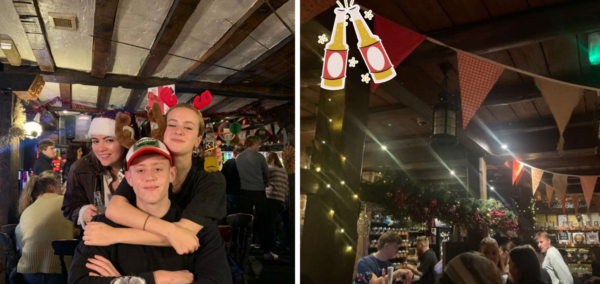Welsh university lecturer speaks out about living with endometriosis
Lara Stevens opens up about life with endometriosis in hopes of raising awareness of the condition
A Welsh university lecturer has spoken out about living with endometriosis in hopes of raising awareness.
Lara Stevens, a survivor of Non-Hodgkin Lymphoma, has spoken out about life with endometriosis in hopes that it will help raise awareness of the condition.
Speaking with BBC News, Lara compared having endometriosis to the cancer she had as a child and said that endometriosis is not “given the same level of importance as cancer… [and that] maybe this should be seen as important.”
After spending two years trying to get pregnant, the occupational therapy lecturer decided to get private surgery to address the problem. Stevens felt she had to receive private treatment for the condition as she said she “could not afford to wait”.
The endometriosis was found spread across her bladder, ovaries and bowels.
Endometriosis is a condition where the endometrium (uterus lining tissue) grows somewhere outside of the uterus. While most commonly found in the pelvic region and reproductive organs, it has been known to spread as far as the brain.
The symptoms of this condition can include severe pain, extreme fatigue, and infertility. As it can affect any organ within the body, signs and symptoms are often misdiagnosed or overlooked.
Despite an estimated 1.5 million women in the UK suffering from the condition, there is very little recognition or understanding of the condition and on average it takes between seven to nine years from your first onset of symptoms to an official endometriosis diagnosis in the UK.
The current average waiting time for a gynaecologist referral in Wales is 28 weeks, with 10 per cent waiting over 74 weeks.
Most Read
Shortly after her successful surgery, Lara became pregnant but her fight did not end there. She believes another surgery will be needed soon for a lesion on her bowels and is now one of 50,000 women across Wales waiting for post-surgery follow-up appointments.
In response to these numbers, the Welsh Government and NHS have been working together on a long-term plan to “reduce health inequalities, improve equity of service, and improve health outcomes for women in Wales”, in hopes of establishing “a healthier Wales for women and girls”.
In March of this year, Eluned Morgan, the Welsh Minister for Health and Social Services set a list of objectives for women’s health which included introducing endometriosis specialist nurses to each health board.
The Welsh government’s 10 year health plan for women has come under fire as being introduced too late, with England creating one in 2022 and Scotland in 2021.
UK-based charities, such as The Endometriosis Foundation and Endometriosis UK, have set out to highlight hypocrisies and misinformation about women’s health in the NHS.
The Endometriosis Foundation said on its website, that it “believe[s] everyone should have access to accurate, transparent, and trusted information, especially when it comes to making decisions about their bodies.”
By organising fundraising campaigns, such as half-marathons, these charities raise not only much-needed funding but also awareness for a condition that affects 190 million women worldwide.
To find out more information about the condition or to get advice, visit the NHS or Endometriosis UK.
Featured image via Pixabay



















